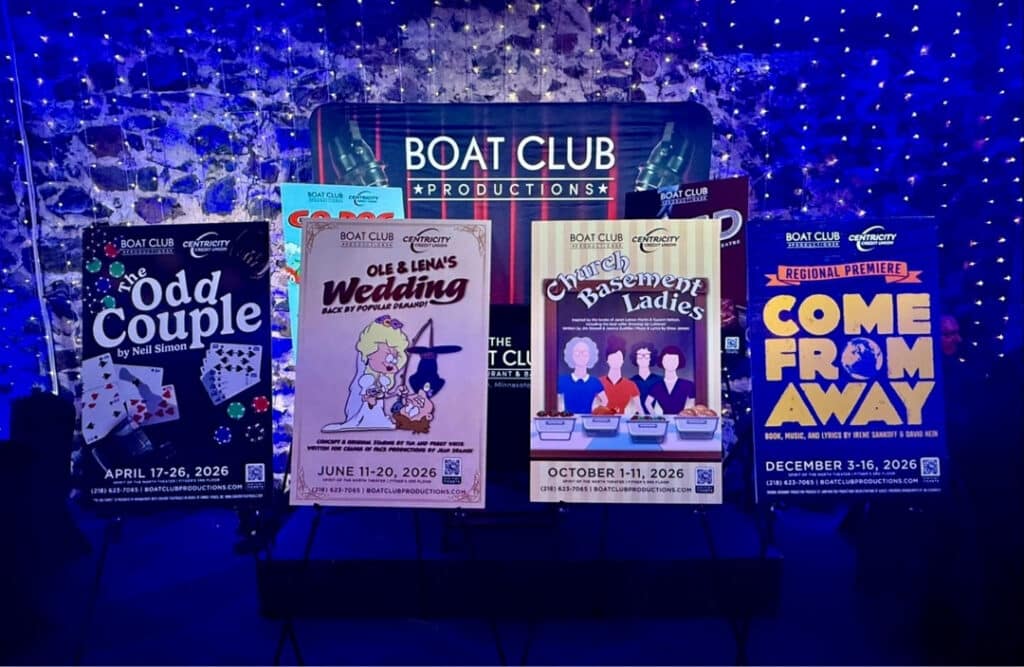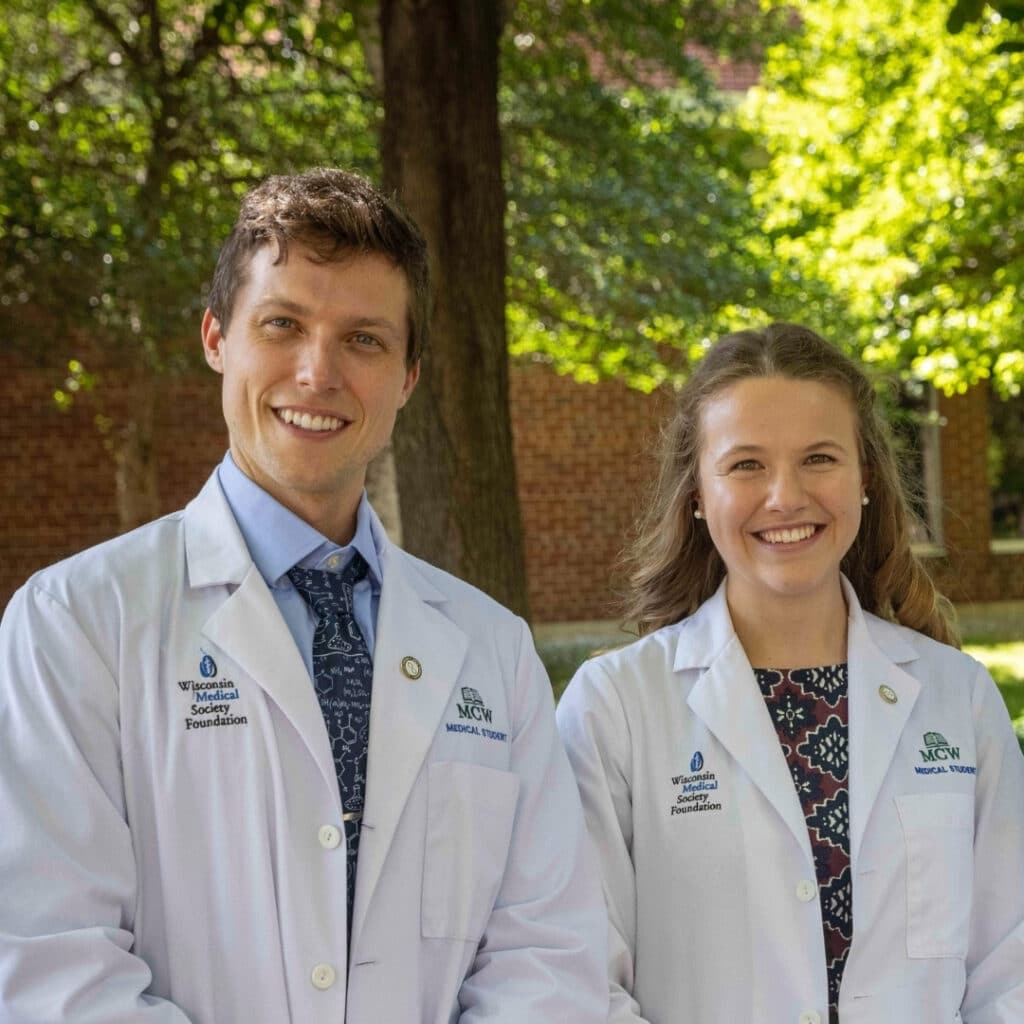CSS’s The Comedy of Errors Is Filled with Double Trouble The College of St. Scholastica (CSS) opened their run on Friday night of William Shakespeare’s first comedy and one of his earliest plays, The Comedy of Errors. Comedy has a preposterous plot with ridiculous complications, all devolving into complete and utter chaos. Shakespeare requires that the audience to suspend disbelief that identical twin brothers and their two identical twin servants, shipwrecked and separated as young children, would all end up in the same town a few decades later. Each pair of brothers is meant to be dressed exactly alike, and each is completely oblivious to the presence of the other. As it is Shakespeare’s shortest play (Friday night it ran 75 minutes, without intermission) and with its broad comedy and colorful characters, it is accessible for audiences and also for younger and sometimes less experienced actors to give it a go. Its mistaken identities, broad gags, and crowd-pleasing nonsense make it a popular choice as “entry-level” Shakespeare. According to the CSS Theatre Program Mission Statement, included in the show’s program, they are “distinguished from professional actor preparation. programs in that the production selection is firmly grounded in academic, not populist plays.” It also states that they look at theatre as a component of a liberal arts education. The cast of CSS alumni and current students have a broad range of majors from computer science to nursing, biochemistry to social work. None of them is planning on life in professional theatre with a major and a wide variety of supporting coursework. With that in mind, I applaud that the cast had obviously worked diligently on their line memorization and acting choices and were truly earnest as a group to tell the story to the best of their abilities. Shakespeare is not easy—the Bard is hard, and it was obvious that the cast and team had done a lot of work to get to opening night. Playing the two “rich” brothers, Tom Rajcula (Antipholus of Syracuse) and his counterpart Jacob Barto (Antipholus of Ephesus) had the best facility with the language. Both were commanding and mature presences onstage, and while they did not look all that much alike, they were convincing in their roles. The two beleaguered twin servants, Dromio of Syracuse (Dawson Ness) and Dromio of Epesus (Michael Schmidt) seemed to be having the most fun onstage and by extension gave the audience the most to laugh at. The two actors portrayed well the bewilderment and confusion of trying to complete the tasks assigned by their masters, while each was the wrong servant for the wrong master at the wrong time. Audrey Eklof (Luciana) had wonderful facial expressions and had a good grasp on her unmarried sister role, who finds herself attracted to her sister Adriana’s husband when it is really his long-lost brother. Rylan Klomp (Duchess Solinus) with her elegant costume, was also strong in her role as the stern, but benevolent leader of Ephesus. More creative and dynamic approaches to design and direction, however, could have made the show more vibrant. Blocking, staging, setting, and costume period choices were, at times, limiting in terms of showing something new for this play and its audiences. It would have helped to more clearly establish the setting. The seaside setting was the one word “Mediterranean” in the program, a few sound effects at the beginning of the show of seagulls and water, and some line references. Perhaps, a hectic port marketplace with wildly costumed Bohemian-style vendors plying their eclectic wares in overbrimming stalls, would have given a vivid setting in which to place the action. Underscore music could have also made the atmosphere more dynamic, helped to create excitement, and also added to a sense of time and place. As an audience, do you need to understand all the intricacies of iambic pentameter, blank verse, and antiquated references that your hard-working English teacher tried so hard to make you care about to enjoy Shakespeare? Decidedly and emphatically no. Shakespeare can be enjoyed as a look at the foibles of al aspects of human nature even in modern day America. And giving audiences any chance to laugh in these difficult times is another way that theatre still remains relevant and important. Show Information The CSS Theatre is located on the campus of The College of St. Scholastica in Duluth. The building is located directly behind Tower Hall. November 3, 4, 9*, 10, 11 AT 7:30 PM November 5, 12 AT 2 PM *ASL interpreted performance Tickets available online at boxoffice@css.edu Or at the theatre box office phone number 218–723-7000 All Seating is General Admission $15.00 Adults $10.00 Students and Sr. Citizens $5.00 CSS Students Next CSS production is The Rabbit Hole by David Lindsay-Abaire. February 23-March 3, 2024
Get the latest stories in your inbox









